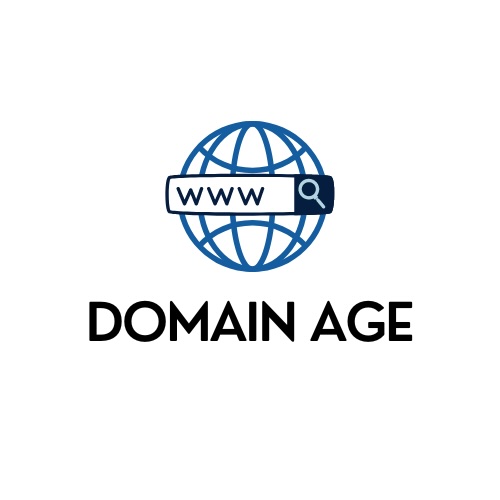The role of domain age in determining search rankings has been a topic of perpetual debate. Website owners and digital marketers alike are keenly interested in understanding whether the age of a domain carries substantial weight in the eyes of search engines, particularly Google. This article delves into the intricacies of domain age and its purported influence on search rankings, unravelling the myths, exploring the nuances, and providing insights into the broader context of SEO strategies.
The Foundation: What is Domain Age?
Before dissecting its impact, let’s establish a clear understanding of what domain age entails. Domain age refers to the length of time a domain has been registered and actively used for hosting a website. It is a metric often considered by search engines as they assess the credibility and reliability of a website. However, the question persists: Does the number of years a domain has been in existence play a decisive role in determining its ranking on search engine results pages (SERPs)?
The Myth: Age Equals Authority
One prevailing myth in the realm of SEO is that older domains inherently possess more authority, trust, and therefore, are favored by search engines. This presumption suggests that Google, in its complex algorithmic calculations, rewards longevity with higher rankings. While it’s tempting to correlate age with authority, the reality is more nuanced.
Historical Context and Initial Rankings
In the earlier days of the internet, domain age did carry more weight. Newer websites faced challenges in establishing trust, and search engines, lacking the sophisticated algorithms of today, often relied on domain age as a proxy for credibility. Consequently, older domains enjoyed a certain advantage in the nascent stages of search engine development.
The Algorithmic Evolution
As search engines, particularly Google, evolved, so did their algorithms. The emphasis shifted from simplistic metrics like domain age to more sophisticated factors. Google’s algorithms became increasingly adept at evaluating the relevance, content quality, and user experience offered by websites. The era of algorithmic sophistication brought forth a more equitable playing field, where newer domains could compete based on merit rather than mere longevity.
Freshness and relevance
Google, in its pursuit of delivering the most relevant and up-to-date results to users, introduced the concept of content freshness. Websites that consistently published relevant, timely content began to gain prominence, challenging the notion that older domains held an automatic advantage. Freshness, it seemed, could be as influential as age.
The Reality: Age as a Signal, Not a Silver Bullet
While domain age is considered by search engines, it is crucial to view it as one of many signals in the broader SEO landscape. It alone does not guarantee a website’s success or failure in rankings. Google’s algorithm takes into account a multifaceted array of factors, with a primary focus on delivering value to users.
Trustworthiness and Consistency
Older domains may benefit from having established a track record of trustworthiness and consistency. Search engines may perceive them as less likely to engage in spammy practices or black-hat SEO techniques. However, this advantage is not insurmountable for newer domains that adhere to ethical SEO practices.
Domain History and Reputation
The historical behavior of a domain can influence its reputation. A domain with a clean history, devoid of penalties or questionable activities, is likely to enjoy a positive reputation. Conversely, a domain with a history of penalties or unscrupulous practices may face challenges in building trust.
The Nuances: Factors Beyond Age
To comprehend the intricacies of domain age and rankings, it is essential to explore the additional factors that contribute to a website’s SEO performance.
Content Quality and Relevance
In the modern SEO landscape, content quality reigns supreme. Search engines prioritize websites that produce valuable, relevant content that addresses user intent. A well-crafted, informative article on a newer domain can outrank a dated page with outdated or less relevant content.
Backlink Profile
Backlinks, or incoming links from other reputable websites, remain a potent ranking factor. The quality and quantity of backlinks significantly impact a website’s authority. A newer domain with a robust backlink profile can challenge older counterparts lacking in this aspect.
User Experience
User experience is a critical determinant of search rankings. Factors such as site speed, mobile responsiveness, and overall usability contribute to a positive user experience. A well-optimized, user-friendly website can surpass older, less user-centric counterparts.
Technical SEO
Technical aspects, including proper site structure, clean URL formatting, and adherence to SEO best practices, play a pivotal role. A technically sound website, irrespective of its age, is more likely to rank favorably in search results.
The Strategy: Navigating SEO with a Holistic Approach
In the dynamic landscape of SEO, adopting a holistic approach is paramount. Website owners and marketers should focus on a comprehensive SEO strategy that encompasses multiple facets, leveraging both the advantages of domain age and the agility of newer domains.
Strategic Content Creation
Prioritize the creation of high-quality, relevant content that resonates with your target audience. Fresh, insightful content can attract users and signal to search engines that your website is a valuable resource.
Backlink Acquisition
Actively pursue a diverse and authoritative backlink profile. Building relationships with other reputable websites and earning quality backlinks can enhance your website’s authority, regardless of its age.
Technical Optimization
Invest in technical SEO to ensure your website is well-optimized for search engine crawlers. A technically sound website contributes to better crawlability and indexation, positively impacting rankings.
User-Centric Design
Place a premium on user experience by designing a website that is intuitive, fast, and responsive. Prioritize mobile optimization, as an increasing number of users access the internet via mobile devices.
Monitoring and Adaptation
Regularly monitor your website’s performance using analytics tools. Stay informed about industry trends, algorithm updates, and evolving user behaviours. Adapt your SEO strategy accordingly to maintain competitiveness.
Beyond Chronology to Value
In the perpetual quest for SEO excellence, the influence of domain age on search rankings is undeniable but nuanced. While older domains may benefit from historical trust and consistency, newer domains possess the agility to compete through strategic content creation, backlink acquisition, technical optimization, and user-centric design.
The key takeaway is that domain age is a component of SEO strategy, not its sole determinant. Success lies in understanding the broader landscape, adapting to algorithmic shifts, and consistently delivering value to users. In navigating the SEO odyssey, websites – whether seasoned or emerging – should prioritize relevance, user satisfaction, and ethical practices to secure a lasting presence on the ever-changing SERPs.
Consulting, Technology, E-commerce, Digital, Media, Cloud, Operations & Staffing. Alumni of Pune University.























